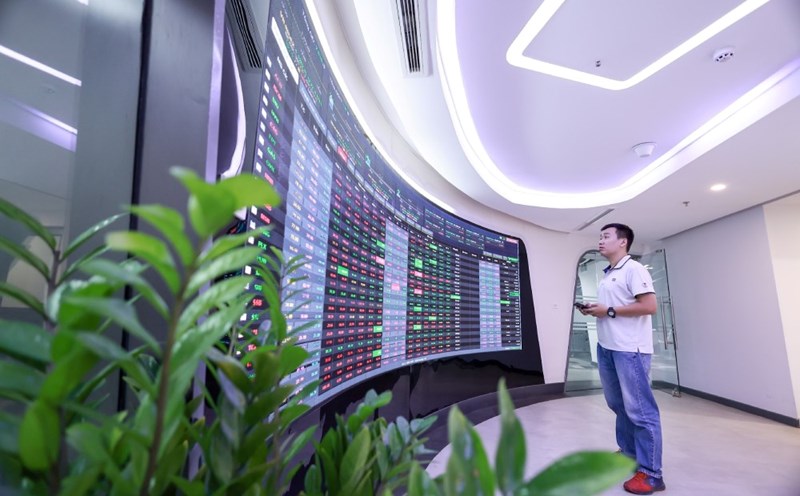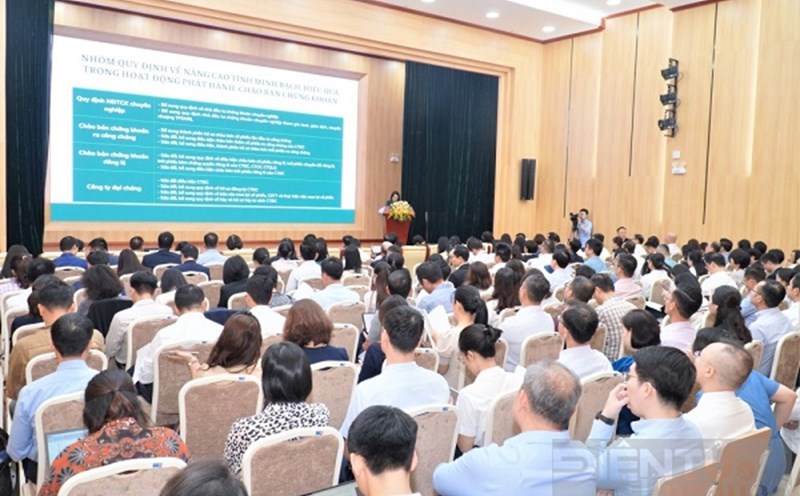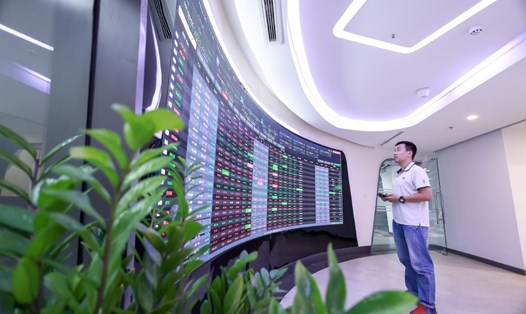Foreign net selling pressure remains high
The Vietnamese stock market is entering 2025 with few advantages as two important driving forces, cash flow and internal corporate growth, are showing signs of weakening.
The major concern of the Vietnamese stock market in 2024 and 2025 is net selling pressure from foreign investors.
The record net selling of more than 94 trillion VND in 2024 prevented the VN-Index from surpassing the 1,300-point mark even though domestic cash flow participated strongly and absorbed this supply well.
The market has always agreed on the attractiveness of the Vietnamese stock market as well as the possibility of soon being upgraded to an emerging market - Emerging Market will attract foreign capital, but the reality is the opposite.
Vietnam is a market that has been sold off heavily in 4/5 recent years with the largest selling rate in the region when calculated based on capitalization or total value held by foreign investors.
The movement of foreign capital in 2025 will therefore remain unknown, as President Donald Trump's new policy focuses heavily on tariff tools, creating tariff wars between countries as well as making the US inflation situation likely to return.
Therefore, according to experts, if the Vietnamese stock market is officially upgraded as planned, the ability to attract large capital flows is very strong.
The cash flow of investment funds to the frontier market is not large, but when upgraded to the secondary emerging market, the fund size of several billion USD, many times larger than before, is easy to encounter.
Upgrading the market will attract foreign capital.
The Vietnamese stock market is currently classified as a frontier market by FTSE Russell and MSCI - the world's two largest index providers. Vietnam's share in these two markets is currently the largest.
It took Vietnam 6 years to upgrade its market. Currently, almost all steps regarding administrative procedures, laws, and infrastructure of securities companies have been implemented, supporting the implementation of the requirements for upgrading. The remaining question is how to receive comments from foreign investors.
FTSE will have a "review" period in March and September, more cautiously in September it will be officially upgraded and listed on ETFs from March 2026.
Sharing with investors in a meeting before the Lunar New Year, Ms. Do Minh Trang - Director of the Analysis Center of ACBS Securities Company said that, according to estimates, VN-Index will account for about 0.3 - 0.4% of the weight in the emerging market index basket of FTSE.
With this result, ACBS estimates that there will be 222 securities eligible for inclusion in the FTSE portfolio.
However, the proportion of each code will depend on the investable capitalization ratio of each code. Thus, the top 20 stocks account for 0.218%/total 0.366% of the capitalization of the Vietnamese market, equivalent to 60%.
Accordingly, there will be about 300 - 400 million USD from passive ETFs flowing into the Vietnamese stock market. As for active cash flow, it is forecasted to be about 3 - 5 billion USD within 5 years.
“In the short term, the upgrade will only impact ETF sentiment and cash flow. The upgrade will not bring much immediate positive cash flow, but in the long term, 3-5 years is a great opportunity,” Ms. Trang commented.
According to ACBS estimates, the FTSE Emerging Index portfolio has a large proportion of large-cap stocks. For businesses, securities companies with large trading and revenue from foreign investors will benefit.
Statistics show that most markets will rise in the 6 months to 1 year before the upgrade event. With a more certain expectation of September 2025 upgrade and March 2026 ETF listing, it can be said that throughout 2025, it is a good period.
During that period, stocks that benefit the most from the upgrade should be prioritized, such as large-cap stocks with a lot of banking stocks, even then the cash flow from investment funds will also go a lot into the banking industry.











